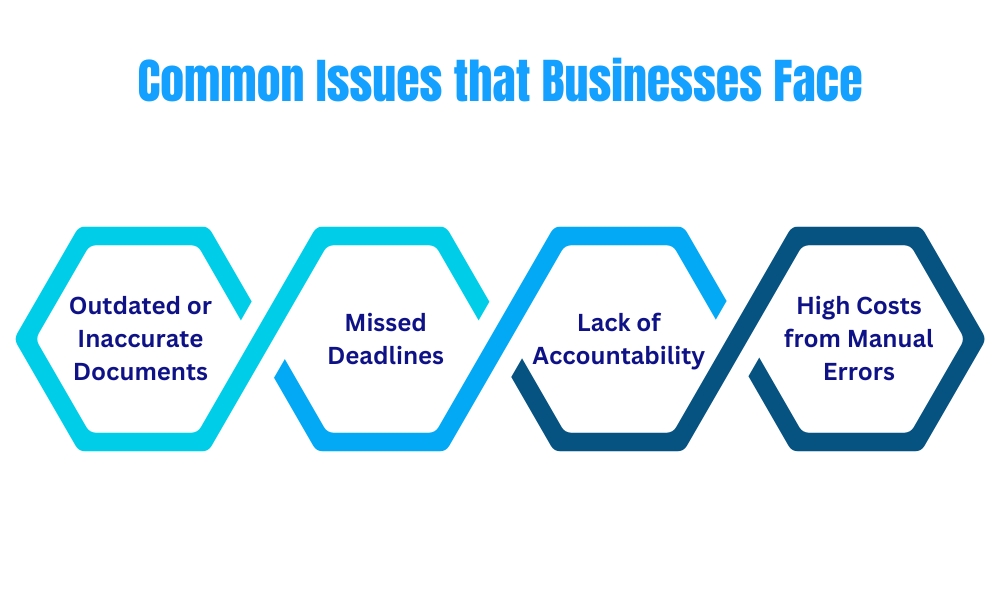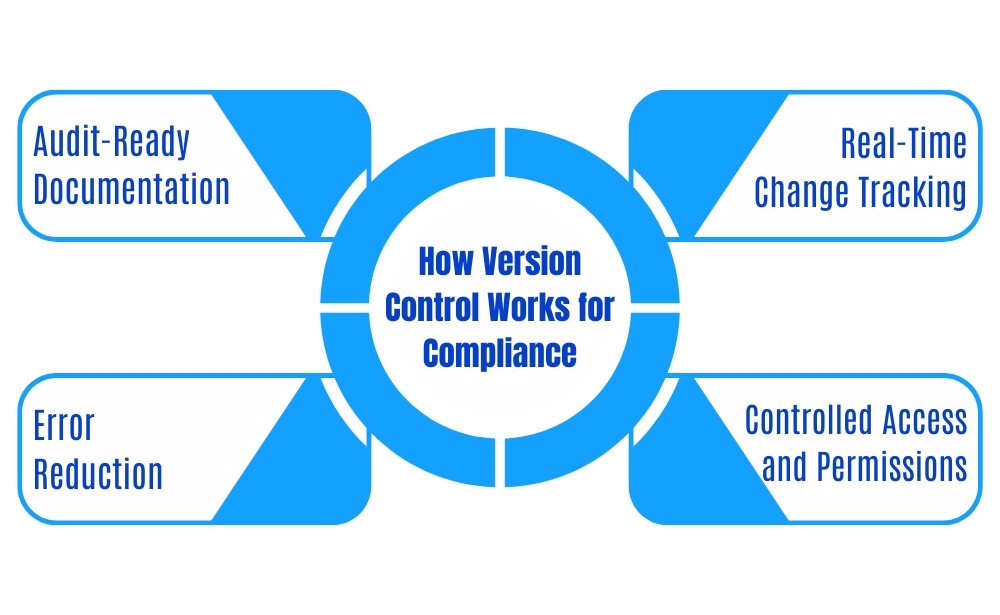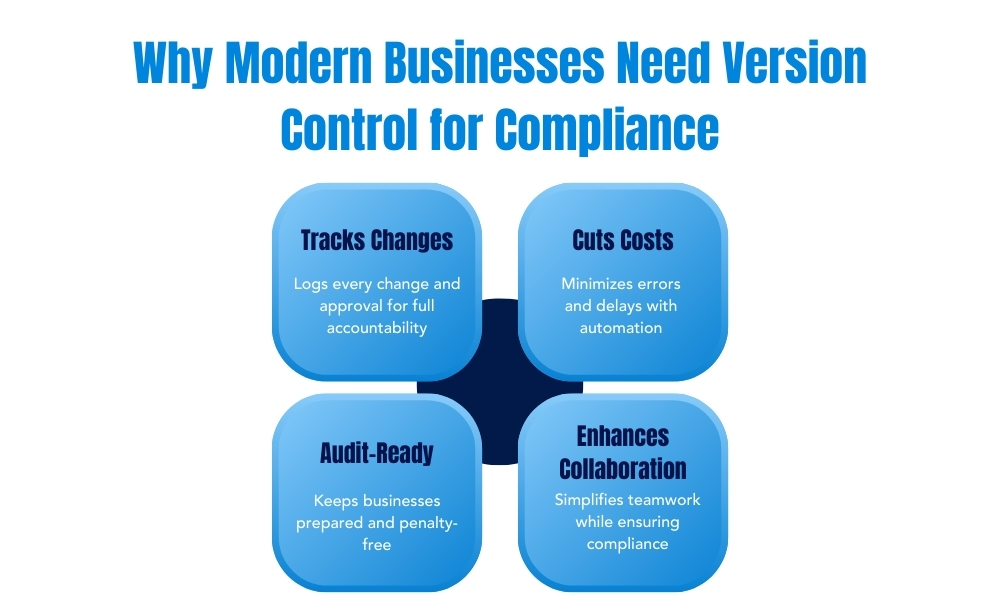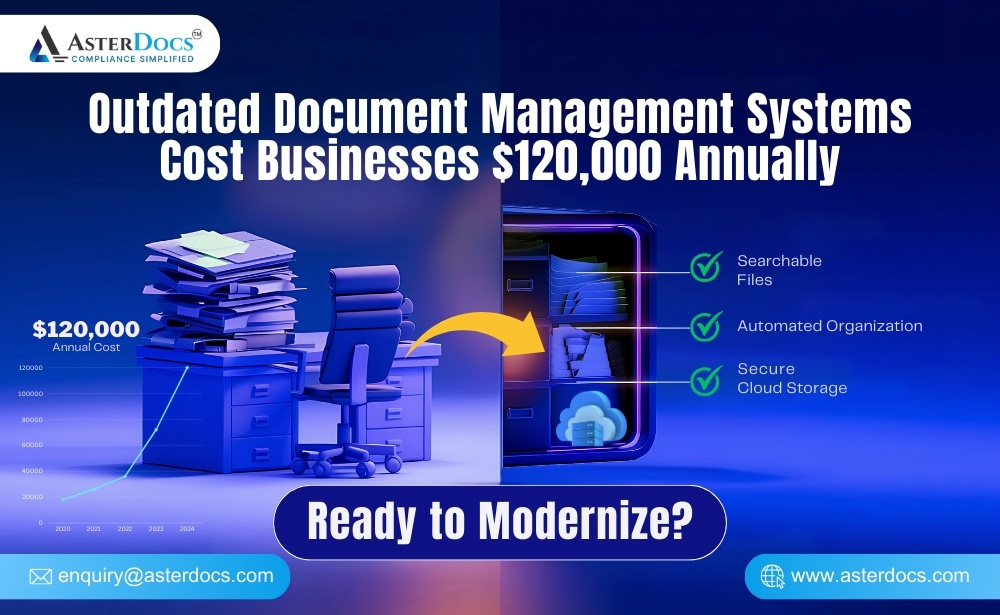Businesses today demand faster, more accurate compliance processes, and traditional paper-based systems no longer make the cut. Companies are embracing digital tools to streamline document management and keep up with rising regulatory demands. At the heart of this transformation lies version control software for compliance, which ensures documents are accurate, traceable, and always audit-ready.
Modern compliance requires more than just organized files; it needs document management systems that integrate version control. Together, these tools eliminate errors, improve accountability, and keep businesses prepared for regulatory scrutiny.
Let’s explore how document version control solves critical compliance challenges and transforms document management.
What Happens Without Version Control?
Failing to implement version control in document management creates serious compliance risks. Here are some common issues businesses face:
- Outdated or Inaccurate Documents
Employees often rely on the wrong version of a document when there’s no version control in place. This can lead to regulatory penalties or operational mistakes. - Missed Deadlines
Compliance deadlines demand precision and organization. Without automated tools, businesses risk losing track of key updates, approvals, or renewals. - High Costs from Manual Errors
Manual document tracking wastes valuable time and resources. Teams spend hours hunting for files, fixing errors, or recreating lost data—inefficiency businesses can no longer afford. - Lack of Accountability
Without a system to track who made changes and when, compliance audits become a nightmare. Missing logs and unclear ownership often result in unnecessary scrutiny.

Version control solves these challenges by providing structure, visibility, and control over critical documents.
How Version Control Works for Compliance
Version control ensures compliance by offering precise document tracking, error reduction, and streamlined workflows. Here’s how it works:
- Audit-Ready Documentation
Version control tracks every change, making it easy to produce a detailed document history during audits. Businesses can confidently show when updates were made and by whom. - Real-Time Change Tracking
Every edit, approval, or update is logged with a timestamp. This eliminates confusion over which version is the most current and ensures teams always work with accurate information. - Controlled Access and Permissions
Version control software limits who can edit, view, or approve documents. This prevents unauthorized changes and reduces the risk of non-compliance. - Error Reduction
By automatically saving changes and creating backups, version control minimizes the risk of accidental overwrites or lost data.

Document Management Systems with Version Control: A Perfect Pairing
When integrated with a document management system, version control becomes even more powerful. Here’s why this combination is essential for compliance:
- Centralized, Secure Storage
A document management system consolidates all files in one secure location. Teams can access the latest versions without wasting time searching through folders or emails. - Automated Reminders and Notifications
Missed compliance deadlines become a thing of the past. Document management systems send reminders for updates, renewals, or approvals, keeping businesses on track. - Access Permissions and Collaboration
These systems allow teams to collaborate seamlessly while maintaining control over who can edit or view documents. This ensures compliance while fostering productivity. - Scalable for Growth
Whether you’re managing dozens or thousands of documents, a robust document management system grows with your business, keeping compliance workflows smooth and efficient.
Regulatory requirements are becoming more complex, and businesses can’t afford to rely on outdated systems. Here’s why version control is essential in today’s compliance landscape:

Conclusion
Compliance in the digital age isn’t optional—it’s the backbone of trust and credibility. Without the right tools, businesses face unnecessary risks and inefficiencies. Version control software for compliance, paired with a robust document management system, ensures your processes are accurate, efficient, and always ready for regulatory scrutiny.
Don’t let outdated methods hold your business back. Adopt tools like AsterDocs that modernize compliance workflows and prepare your organization for the future. With version control and document management, staying compliant has never been simpler—or more effective. Visit https://asterdocs.com/ for more information.













